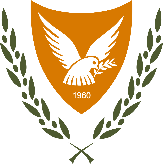Multidisciplinary approaches to food and foodways in the medieval Eastern Mediterranean. / edited by Sylvie Yona Waksman.
Τύπος υλικού: ΚείμενοΓλώσσα: engfre, Γαλλικά Summary language: Αγγλικά, Γαλλικά Σειρά: ; 4Λεπτομέρειες δημοσίευσης: Lyon: Mom éditions, 2020.Περιγραφή: 1 vol. (505 p.) : ill. in black and color, maps, plans, graphs ; 30 cmISBN:
ΚείμενοΓλώσσα: engfre, Γαλλικά Summary language: Αγγλικά, Γαλλικά Σειρά: ; 4Λεπτομέρειες δημοσίευσης: Lyon: Mom éditions, 2020.Περιγραφή: 1 vol. (505 p.) : ill. in black and color, maps, plans, graphs ; 30 cmISBN: - 9782356680709
| Τύπος τεκμηρίου | Τρέχουσα βιβλιοθήκη | Κατάσταση | Γραμμοκώδικας | |
|---|---|---|---|---|
 Books
Books
|
Βιβλιοθήκη Τμήματος Αρχαιοτήτων = Department of Antiquities Library | Διαθέσιμο | DAL00021087 |
Ouvrage issu du colloque de clôture du programme POMEDOR, "People, pottery and food in the medieval Eastern Mediterranean", Lyon, Maison de l'Orient de la Méditerranée, 19-21 mai 2016
Bibliogr. at the end of contributions. Bibliographic notes.
This volume brings together archaeologists, archaeological scientists and historians contributing different specialisms to an emerging field of research: food and foodways in the medieval Eastern Mediterranean. It presents the output of the POMEDOR project "People, pottery and food in the medieval Eastern Mediterranean" funded by the French National Research Agency. POMEDOR focused on changes in transitional periods, such as the Crusades and the Turkish conquests, as viewed through archaeological and archaeometric studies of pottery. The volume offers a wider scope, with research based on archaeobotany, archaeozoology, biological anthropology, and the study of archaeological structures, texts and iconography. Last but not least, it reveals the recipes conceived for a "Byzantine" dinner, held at the Paul Bocuse Institute during the final conference of the POMEDOR project ; Dans ce volume, archéologues, archéomètres et historiens contribuent par différentes approches à un domaine de recherche émergent : les pratiques alimentaires en Méditerranée orientale médiévale. Il présente les résultats du programme ANR POMEDOR « Populations, poteries et alimentation en Méditerranée orientale médiévale », qui abordait l’évolution de ces pratiques lors de périodes de transition, telles que les croisades ou les conquêtes turques, principalement au travers d’études archéologiques et archéométriques de céramiques. Cet ouvrage couvre un champ plus large, incluant l’archéozoologie, l’archéobotanique, l’anthropologie biologique, l’étude des structures archéologiques, des textes et de l’iconographie. Enfin, il dévoile les recettes conçues pour un dîner « byzantin » clôturant le programme POMEDOR, organisé à l’Institut Paul Bocuse.
Δεν υπάρχουν σχόλια για αυτό τον τίτλο.

